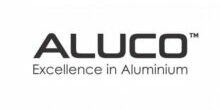When it comes to new windows and doors for the home, the choices are aluminium, PVCu or timber windows. With different materials and brands of windows, what is the best window material for your home? In this article, we help you by focusing on the essential aspects of aluminium, PVCu or timber windows. We will explain aesthetics, security, maintenance, features and cost.
First of all, there are a few things to consider when researching what the best material for your new windows and doors is. If you are replacing your existing windows, you have to decide if you want new windows in the same style and colour. Alternatively, you may be thinking of changing the entire appearance of the house and choosing a different type of window in a new colour as well.
Besides window style and colour, think about ventilation through the right size window vents. A means of fire-escape on upper floor windows is vital as well.
Why does it matter what aluminium, PVCu or timber windows are made of?
For new build houses and extensions, you have more flexibility and freedom. With the current trend of extending our homes and creating modern extensions, your windows may need to work sympathetically with new aluminium bifolding doors or the latest contemporary sliding doors.
The good news is that aluminium, plastic and timber windows now come in a diverse range of styles and types to work with any age or type of house. Some materials offer you less choice as we explain later on in this article.

Beware the myths around PVCu, timber and aluminium windows.
It is important to ensure you are reading factual and correct information about these three very different window materials. Because some aluminium websites try to dissuade you from having timber or upvc, they can give the impression that choosing these options will cause you inconvenience. As a result, they may say things like high maintenance or a substandard product through weakness. This information is frequently incorrect.
Likewise, some PVCu websites continue to point to weaknesses in aluminium windows that are no longer relevant with current products. Every window material has its good and bad points depending on where you fit it and the intended use. Here are some of the common myths you will read about aluminium, PVCu or timber windows.
|
Aluminium Myth |
PVCu Myth |
Timber Myth |
|---|---|---|
|
Aluminium Windows Condensate |
PVCu windows warp and twist |
Timber windows need constant maintenance |
|
Aluminium windows are entirely maintenance free |
PVCu windows look cheap |
Timber windows are too expensive |
|
Aluminium windows are only for commercial buildings |
PVCu windows are not secure |
Only traditional windows are available |
|
Aluminium windows are not energy efficient |
PVCu windows are weak |
Engineered timber will warp |
|
Aluminium windows rust or corrode |
PVCu windows stick |
Timber suffers from sunlight and water ingress |
|
You can’t repair aluminium windows |
PVCu windows are mass produced |
Timber windows are heavy and hard to use |
|
Aluminium windows only come as casements |
PVCu windows are not environmentally friendly |
Timber windows are not suitable for sunny elevations |
Our article comparing PVCu and aluminium bifolding doors points out that substantial businesses are behind PVCu. The same applies to timber windows.
Systems companies for all three materials are professional organisations, many of which operate all over the world. As a result, all windows in aluminium, PVCu or timber meet standards, set specifications and are fit for purpose.
Aesthetics are important when choosing new windows.
One of the critical considerations, when you choose new windows for your home, is how they look. Appearance is where all three materials can differ. The most significant advantage of aluminium windows compared to PVCu and timber is that they are usually much slimmer. In contrast, there are also several brands of aluminium windows that are thicker in appearance. These thicker aluminium windows are intended to replicate traditional windows such as flush casement timber windows.
However, if you desire slimline windows first and foremost, aluminium is the winner.
In choosing aluminium windows your property style is another factor. You may want to replicate your existing windows such as Crittall® windows, traditional timber windows or sliding sash windows. For some window styles, some materials work better than others. The good news is, PVCu, aluminium or timber windows mostly come in all the different opening styles. Options include fixed, outward opening windows, tilt and turn windows and sliding windows.
Aesthetics are important in deciding what profile style you want from your windows. Most casement windows come in flat, sculptured or ovolo styles. For very flat modern windows, aluminium tends to be the preferred choice, although profiles sections are also available.
Where to use pvcu, aluminium or timber.
|
|
Aluminium |
PVCu |
Timber |
|---|---|---|---|
|
Contemporary looking windows |
Widely available |
Few Options |
Widely available |
|
Steel or Crittall® replacement windows |
Available |
Not Available |
Not Available |
|
Cottage windows |
Available |
Widely Available |
Widely Available |
|
Sliding Sash Windows |
Limited Options |
Many options |
Many options |
|
Large picture or gable windows |
Best |
Restricted by Size |
Restricted by Size |
|
Conservation Area Windows |
Sometimes Approved |
Often Approved |
Frequently Approved |
|
Windows with hardwood subframes |
Best |
Not recommended |
Not Applicable |
|
Feature windows such as above bifolding doors |
Best |
Not recommended |
Available |
|
Flush Casement Windows |
Available |
Widely Available |
Widely Available |
|
Frameless Windows |
Available |
Not Available |
Not Available |
|
Hybrid Windows |
Available |
Rarely Available |
Available |
|
Oversize/Heavy Duty Windows |
Recommended |
Not Recommended |
Subject to sizes |
As you can see, aluminium windows cover most window requirements but are generally not used for traditional windows such as sliding sash windows. Similarly, aluminium, PVCu and timber products all have their distinct advantages. It all depends on what you want and your property.
By far the biggest advantage of aluminium is bigger windows and doors with slimmer sight lines. PVCu and timber windows generally cannot meet the need for expansive glazing such as floor to ceiling windows.

Colour choices for aluminium, PVCu and timber windows.
For all window materials, modern technology means a big colour choice. Aluminium windows offer a bigger selection of colours thanks to the extensive RAL and other colour ranges. PVCu windows also enjoy a great choice. Options include wet painted windows or using a foil.
Timber windows also give you colour choices. You can colour-match to Farrow and Ball, Laura Ashley and other premier paint brands. The same can also be done with aluminium but expect to pay extra for this and wait a long time for your windows.
When it comes to dual colour windows, aluminium and timber are easier to produce. Different colours inside and out are also possible with PVCu windows. However, with PVCu you may end up with an unsightly joint where the two colours meet or bare profile on the unseen faces. Aluminium and timber windows overcome this because of the production process involved.
Aluminium is best for contemporary colours. You have the choice of metallic, anodised and textured paint surfaces. Timber and PVCu don’t offer this option.
Just like PVCu and timber, some aluminium systems such as Origin and Smarts Windows also come in a choice of woodgrains. These specialist colour are applied to the aluminium profiles but expect less choice than with PVCu or timber.
Both PVCu and aluminium colour choices and methods of colouring should provide you with an extended guarantee. However, when it comes to windows for swimming pools, coastal or exposed environments, aluminium is recommended over PVCu every time. Timber windows chosen right can withstand more severe locations. Speak to an expert timber windows provider to understand if there are any restrictions or limitations.
Colour differences comparing PVCu with aluminium
|
Feature |
Aluminium |
PVCu |
Timber |
|---|---|---|---|
|
Swimming pools and coastal locations. |
Aluminium recommended with a dedicated marine warranty |
Not recommended |
Not recommended |
|
Colour choices. |
The biggest choice with nearly 200 to choose from |
Typically 20-30 standard RAL colours |
Extensive choice of colour |
|
Colour matching to bespoke colours. |
Available at a cost/special order |
Generally not available |
Available at a cost/special order |
|
Colour matching door hardware |
Available with most aluminium systems |
Limited availability |
Some availability |
|
Woodgrain colours |
Few systems offer wood-effect and lengthy lead times. |
Renolit foils offer greater choice and shorter lead times |
Natural stains and woods |
|
Metallic and dual colours |
Widely available |
Not available |
Not available in metallic |
Aluminium, PVCu and Timber Window Security.
Much is made around the strength of aluminium as a material compared to PVCu and less so with timber. It is true that aluminium is strong compared to its weight and slimline proportions. However, do not be misled that aluminium is somehow more secure than PVCu or timber windows.
Systems companies submit their products for security testing to meet one or more of the following standards:
- PAS24
- Secured By Design
- Document Q for new build properties
- European Standards such as WK2 or WK3
Our message around pvcu, aluminium or timber windows is that these windows are secure and are usually subjected to the same security tests, certification and methods of attack. Some websites will mislead you into thinking PVCu windows are weak therefore more susceptible to a break-in. We say any window can be broken into if the burglar has enough time to do so. The window industry is supported by security organisations such as Secured By Design and the British Standards Institute and Kitemarking to ensure you get the best security you can for your windows.
We recommend you ask to see the security certification applicable to the windows and make an informed choice. As a minimum, you can expect multi-point locking, secure and lockable window handles and additional security enhancements with most current-generation timber, aluminium and plastic windows.
U-Values and Window Energy ratings for timber, PVCu and aluminium windows.
All three window materials are designed to meet the minimum requirements of the current Building Regulations of 1.8Wm2K or a C WER (Window Energy Rating). PVCu windows offer the best window energy ratings with double glazed units. Timber and aluminium can give you similar but will typically need enhanced glass specification or triple glazing. Therefore if the lowest U-Values and best Window Energy Ratings matter the most, PVCu windows are hard to beat.
However, in our experience, energy ratings are rarely the deciding factor when choosing new windows. Talk to your supplier, and they can work with you to ensure the best combination of frame and glass to meet your needs.
Maintenance Considerations with PVCu, aluminium or timber windows.
There are extensive and sometimes misleading sales messages around anticipated maintenance for aluminium, PVCu or timber windows. Both aluminium and PVCu are rightly marketed as low maintenance but be aware; no window is absolutely maintenance free.
For the surface finish especially, regular cleaning of both PVCu and aluminium frames ensures they keep their colour and appearance for longer. Timber windows now have a lot of technology applied to their paint finishes making them virtually as durable and resistant as aluminium.
It is important to explain the role of the painted surface on aluminium and timber windows. Both the powder-coated surface on aluminium and the painted surface on timber windows is there to protect the material as well as provide your choice of colour.
If you damage the paint surface on either of these materials, it is likely that over time, both will deteriorate. Yes, aluminium can corrode if the paint surface is damaged and moisture gets into the bare aluminium beneath. This is no different to timber windows. Should you damage the paint surface on any of these windows, it is advisable to get it repaired as soon as possible.
For PVCu the bare plastic profile is far less susceptible as it is merely a polyvinyl material.
Some locations may only require occasional cleaning; others will need more frequent schedules. Qualicoat offers comprehensive guidance on cleaning powder coated frames that you may want to read.
For timber windows, we recommend you speak to a professional supplier that can give you the correct information on the guarantees, maintenance and care needed for the window surfaces. However, advanced micro-porous coatings and general paint technology come as standard with timber windows, and considered alongside PVCu and aluminium.

Prices for aluminium, PVCu and timber windows.
PVCu windows are the cheapest of the three materials. Aluminium sits between plastic and timber, with the timber window usually being the more expensive products.
The price you pay depends on some factors.
- Your supplier being either an installer or a manufacturer or both.
- The price point of the window brand and brand perception.
- Company profit margins and installation charges.
- Administration costs for giving you FENSA certification and your guarantee.
- The colour and specification of your windows.
- Extras and accessories.
Always get two or three comparable quotations and ensure that the prices you quoted are on a like-for-like basis. There is little point in assuming aluminium windows are prohibitive if you are comparing a standard PVCu window with a frameless, structurally bonded product. If you’d like information on where to obtain prices for your windows, please get in touch with us.
Summary. Helping you make an informed choice.
The good news is, aluminium, PVCu or timber windows all provide attractive, energy efficient and secure windows for your home. They also give you a choice of aesthetic and colour.
When to buy PVCu windows.
PVCu windows have also advanced significantly in recent years. You cannot dismiss their market dominance in UK home improvements. The product is easy to make, very cheap to buy, gives the right margins to installers and is a reliable product.
If quality windows at the lowest possible price are your priority, then PVCu has to be a consideration.
When to buy timber windows.
The low-quality timber windows you will often find in new build developments where cost is the primary concern of the developer. The high quality timber windows in the marketplace have had many of their problem areas designed out to result in windows which come with 20-year guarantees, long life of up to 50 years or more, high security, excellent thermal properties and high quality hardware. Timber windows are ideal in conservation areas where traditional aesthetics are so important.
Strict regulatory controls address the sustainability argument for timber windows. Many timber windows today are manufactured from engineered softwood as well as general responsible sourcing of material.
When to buy aluminium windows.
Aluminium has been used in residential homes for many decades already. You will rarely see PVCu windows installed in high-end homes, bespoke builds or properties designed with an architect. All these projects demand aesthetics, qualities and performance where aluminium is the most suitable product.
Aluminium has been used commercially for many years testament to the long-term performance of the product. You will very rarely see PVCu windows and doors installed in demanding environments such as schools, offices, hospitals or shops.
By nature of its inherent strength, aluminium windows and doors can be made wider, taller and more substantial than pvcu. Opening vent sizes of 1600mm square are possible with some systems as are floor to ceiling or panoramic fixed windows.
We summarise the advantages of aluminium, PVCu or timber windows:
|
Aluminium Advantage |
PVCu Advantage |
Timber Advantage |
|---|---|---|
|
Ideal for high traffic and exposed environments |
Cost effective |
Warm, natural material. |
|
Bigger range of products available. |
Ideal for rental property or properties improved for resale |
Very attractive windows and doors. |
|
Bigger window sizes available |
Great choice of foils and woodgrain colours |
Will outlive PVCu and aluminium windows when looked after. |
|
Substantially slimmer profiles and bigger glass areas. |
Lowest window energy ratings. |
Ideal for heritage buildings and conservation areas |
|
Shapes are easier to create |
Re-creates butt joints of timber windows. |
Great for character homes. |
|
Highly desirable modern products. |
Better replicates the aesthetics of old timber windows. |
Most types of windows available in timber |
|
Perfect for replacing steel windows. |
|
|
|
Substantially bigger choice of colours and colour options |
|
|
|
Less thermal expansion means tighter tolerances and better sealing. |
|
|
In considering aluminium, PVCu or timber windows, aesthetics still play the largest part. The entire fenestration sector acknowledges that pvcu and timber windows will have thicker sight lines compared to aluminium. You will not find other materials with the slimline proportions of an aluminium window.
Contact us for further information, to answer any questions and to put you in touch with local providers of aluminium windows for your home.










